
An experimental American airplane, the Convair NB-36H, carried a nuclear reactor that operated in flight, though it did not propel the aircraft, and Russia’s Tupolev Tu-119 operated in similar fashion but neither worked.
US programmes
In May 1946, the US Army Air Forces started the Nuclear Energy for the Propulsion of Aircraft (NEPA) project, which conducted studies until the Aircraft Nuclear Propulsion (ANP) programme replaced NEPA in 1951. This programme included provisions for studying two different types of nuclear-powered jet engines: General Electric's Direct Air Cycle and Pratt & Whitney's Indirect Air Cycle. ANP planned for Convair to modify two B-36s under the MX-1589 project. One of the B-36s, the NB-36H, was to be used for studying shielding requirements for an airborne reactor, while the other was to be the X-6.
However, in 1961 the programme was cancelled before the X-6 was completed.
The Oak Ridge National Laboratory researched and developed nuclear aircraft engines. Two shielded reactors powered two General Electric J87 turbojet engines to nearly full thrust.
Two experimental reactors, HTRE-2 with its turbojet engines intact, and HTRE-3 with its engines removed are on display at the EBR-1 facility south of the Idaho National Laboratory.
Airships
Several studies and proposals for nuclear-powered airships, and although a number of interesting and viable proposals were made, the idea of a nuclear-powered airship never really gained traction, possibly because of the Hindenburg disaster along with several other crashed.
Esta historia es de la edición August 2020 de Global Aviator.
Comience su prueba gratuita de Magzter GOLD de 7 días para acceder a miles de historias premium seleccionadas y a más de 9,000 revistas y periódicos.
Ya eres suscriptor ? Conectar
Esta historia es de la edición August 2020 de Global Aviator.
Comience su prueba gratuita de Magzter GOLD de 7 días para acceder a miles de historias premium seleccionadas y a más de 9,000 revistas y periódicos.
Ya eres suscriptor? Conectar

Edelweiss, The Sound of Music, Grossglockner And Snow, Lots And Lots Of Snow
Austria is a wonderland of mountains, green pastures, lakes and . . . mountains
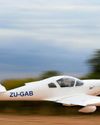
Zimbabwe Air Rally 2021 Part two
The following day we were up early to watch the departure air show once again, it is a large amount of razzle-dazzle to be honest.

Boeing 727 One Crash Per 2 30 6300 Flying Hours
The Boeing 727 is a narrow-body airliner. The first 727-100 rolled out 27 November, 1962, first flew on 9 February, 1963, and entered service with Eastern on 1 February, 1964.

Taking Flight On Another World
The Mars Helicopter, Ingenuity, is a technology demonstration model to test powered, controlled flight on another world for the first time. It hitched a ride to Mars on the Perseverance rover. Once the rover reached a suitable "airfield" location, it released Ingenuity to the surface so it could perform a series of test flights over a 30-Martian-day experimental window.
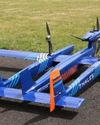
Thales Completes Successful First Flight Of New UAS With Range Capabilities Of Over 100 Km
• With a hybrid propulsion system for optimum safety, endurance and discretion, Thales's UAS 100 long-range unmanned air system for civil, government and military users will be able to operate at ranges of more than 100 km. • UAS 100 combines world-class flight safety performance with the compact design required for unmanned air systems, and complies with future European regulations for drone flights over populated areas. • The system will meet the requirements of a broad range of missions, including infrastructure inspection, coastal surveillance, border surveillance, event security, search-and-rescue and military operations.
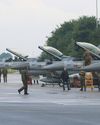
Dutch Squadron Finalises F-16 Operations
The Royal Netherlands Air Force 322 squadron based at Leeuwarden air force base terminated its operations on the F-16 “Fighting Falcon” early July (2021). With the gradual ongoing new deliveries of its successor, the Lockheed Boeing F-35A “Lightning II”, it was time for the squadron to focus only on the embedding of the new jet in the unit.
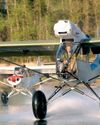
Double Ended Project: Where Is It Now
Traditionally, bush and STOL aircraft have been little more than modified certified trainers, with engine and prop upgrades, or the addition of fatter tyres. However there have been attempts to improve the safety aspect of this type of flying.
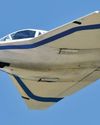
Dyke Delta Lookalike Fighter Kit Plane
The Dyke JD-2 Delta is an American homebuilt aircraft designed in the United States in the 1960s and marketed for amateur construction. It is a monoplane with retractable tricycle undercarriage and seating for four.
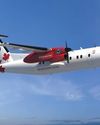
Pratt & Whitney Canada Advances Sustainable Hybrid-Electric Propulsion Technology, Contributing to Canada's Green Recovery Plan
Pratt & Whitney Canada (P&WC), plans to advance its hybridelectric propulsion technology and flight demonstrator programme as part of a $163M CAD investment, supported by the governments of Canada and Quebec.

Airbus showcases the A350-1000 for the first time in Russia at the MAKS 2021 International Aerospace Show
Airbus demonstrated its latest technological innovations and projects implemented in Russia at the International Aerospace Show which took place in Zhukovsky from 20 to 25 July.